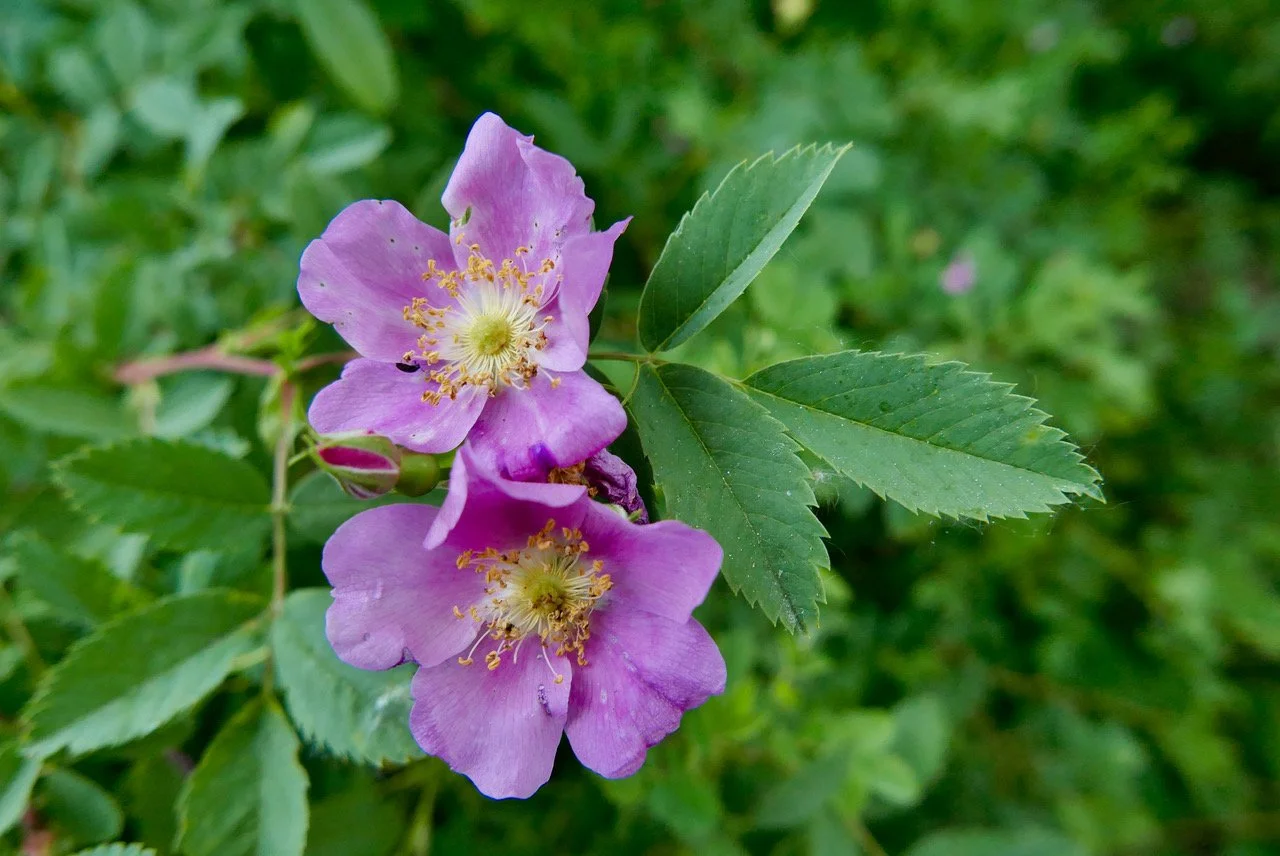Native Plant Alternatives for 5 Common Landscaping Plants
River-Friendly Yards seek to protect the Truckee River from afar, both by using water wisely and by reducing pollutants that could flow down the storm drain and into the river. We can achieve both of these goals by using more native plants in our yards.
Native plants are adapted to our local climate and soils. This means that they usually require less water and fertilizers than many common landscaping plants. If you incorporate them into your yard, that can save you money on your water bill and reduce the potential for fertilizers and pesticides washing down the storm drain. They also provide more habitat and food resources for local wildlife and pollinators.
Read More
NATIVES MATTER
Nonnative plants take up space and resources that would otherwise go to native plants, breaking down local ecological connections and food webs. Native birds depend on insects to feed their babies, and many native insects cannot sustain life from nonnative plants they haven’t evolved to eat. Because nonnative plants don’t do as good a job feeding native insects, this leads to less food for baby birds and biodiversity loss in urban and suburban areas.
Read More
Algae Blooms in Our Waterways: 3 Tips for Prevention
As late summer approaches, you might notice more news popping up about toxic algae blooms. From Washington to Utah to Vermont, algae blooms were all over the news last summer and this summer’s drought conditions could lead to prime conditions again this year.
Waters across the U.S. are seeing higher incidents of algae blooms, and the Eastern Sierra is no exception. Down south, we saw algae blooms in Crowley Lake near Bishop and Bridgeport Reservoir. In the north, the Truckee River watershed had algae blooms at Virginia Lake in Reno and at Pyramid Lake. These algae blooms prompted local water quality officials and health departments to issue warnings to avoid swimming and recreating in these waterways due to health risks.
Read More
10 Reasons to Consider Drip Irrigation
Water is our most precious and dwindling natural resource. And here in the high desert, we don’t get much of it. Nevada is the nation’s driest state, “with statewide annual average (1895–2020) precipitation only 10.2 inches. Temperatures in Nevada are 2.4 degrees hotter since the early 20th century and rising still, we will see declines in average annual snowpack, directly affecting our freshwater supply.” (NOAA)
Read More
Spring Firescaping Tips for a Safe Home and Healthy River
Sift through the Cal Fire website, and you’ll see at the bottom of the page their offer of a short and to-the-point “2022 Fire Season Outlook.” Doesn’t look very good:
“Extended dryness originating from January is expected to continue into the spring with little precipitation leaving most of the state in moderate to extreme drought conditions prior to summer. These continued dry conditions with above normal temperatures through Spring will leave fuel moisture levels lower than normal, increasing the potential for wildland fire activity.”
Read More
WITCH’S BREW: DEMYSTIFYING THE SOIL FOOD WEB, COMPOST TEAS AND EXTRACTS
If you get to talking with a soil, plant, or farming nerd about their craft there is a solid chance that the terms “soil food web,” “compost tea” or “compost extract” will come up. Though they may sound a bit distasteful, even witchy, they are definitely worth looking into as they provide a great service to plants and soils. Think of them as the ultimate super food for your garden ecosystem.
Read More
Calling All Pollinators: 5 Tips to Increase Pollinator Habitat in Your Yard
“Think globally, act locally.” This popular phrase, first coined by Scottish city planner and conservationist Patrick Geddes in 1915, could not be more germane to these times we are living in. Flip on the news and you will undoubtedly learn of the latest environmental catastrophe and its negative impacts: from hurricanes and tornadoes to wildfires and droughts. It can be overwhelming, to say the least, and can leave one feeling hopeless and helpless when it comes to “saving the environment.”
Read More
Serious About Sediments
Have you heard of the Keep Tahoe Blue Campaign? If you answered, “Yes”, then you probably also know that one of the pollutants that affects Lake Tahoe’s world-renowned clarity is sediments. But sediments don’t just affect Lake Tahoe. They are also a pollutant of concern throughout the entire Truckee River Watershed and affect the Truckee River too!
Read More
Fall Pest Prevention Blog
Fall is the time of year when a lot of garden pests try to seek shelter for the winter. Unfortunately, they often consider our homes as an ideal over-wintering option. From mice to spiders to box elder bugs, everyone seems to invade when the temperatures start to drop in the Truckee Meadows.
Read More
Plastic Pollution in Northern Nevada is Unique
"All drains lead to the ocean." In the movie Finding Nemo, that phrase meant the little clownfish could be reunited with his dad. Everywhere else, that phrase means anything you put in your sink or, in fact, anywhere at all will eventually find its way to the ocean. Except everywhere doesn't include places like Nevada.
Read more on the Truckee Meadows Park Foundation blog.
Read More
Truckee River Month 2021 Photo Contest Winners
As part of Truckee River Month 2021, One Truckee River invited the public to participate in the 2021 Truckee River Photo Contest. The theme was “community,” and photo judges selected photographs that capture the connection our community has to the Truckee River.
Read More
Truckee River Wayfinding Signage Project Dedication & Ribbon Cutting
Please join us for a Truckee River Month celebration of and update on the Truckee River Wayfinding Signage Project.
Read More
Plant a Bird Buffet - Providing Food for Birds Year-Round
Spring has sprung in the Truckee Meadows!
And since spring wouldn’t be complete without the cheerful chirping of songbirds, what better way to celebrate spring than by taking a moment to talk about providing for our feathered friends in our River-Friendly Landscapes.
Read More
Deicing Salts: Are There Pet-Safe and Eco-Friendly Options?
While winter may seem like a slow time for gardening, there’s still plenty to do to keep your landscape River-Friendly. One thing to consider is deicing salts used on icy paths and driveways. While they help melt ice and make our roads and walking surfaces safer during the winter months, they also can harm our pets and the environment.
Read More
River-Friendly Landscaping: Planning a Pollinator Garden
It’s late winter. You’ve got cabin fever. It may seem like there’s nothing to do in the garden, and you’re anxiously awaiting the warmer days of spring. Well, you can put some of that restless energy into planning your garden for the next year.
Read More
The Portland Loo comes to Reno
We are delighted to announce the ribbon cutting of the first new Portland Loo on August 17, 2020 at 9:00 am at Brodhead Park! Please come and join us to celebrate the Loo's opening. The Portland Loo, River Restroom Project, evolved out of the One Truckee River Management Plan, Phase I that was developed over the course of many years with multiple Government, nonprofit, local businesses, and residents’ input and insight.
Read More
Guest Post: Aquatic Invertebrates
We're incredibly thankful to the folks at the Galena Creek Visitors Center for putting together these awesome resources for Truckee River Month! Make sure to check out their video on our Facebook page.
Read More
Weekly Trail Highlight: Crystal Peak Park
Thanks to friends of OTR, Mike White and Mark Vollmer, we will be highlighting a Truckee River trail from their book “50 Best Strolls, Walks, and Hikes Around Reno” each week in May. Their book is available for purchase online at Sundance Book Store.
Read More


















